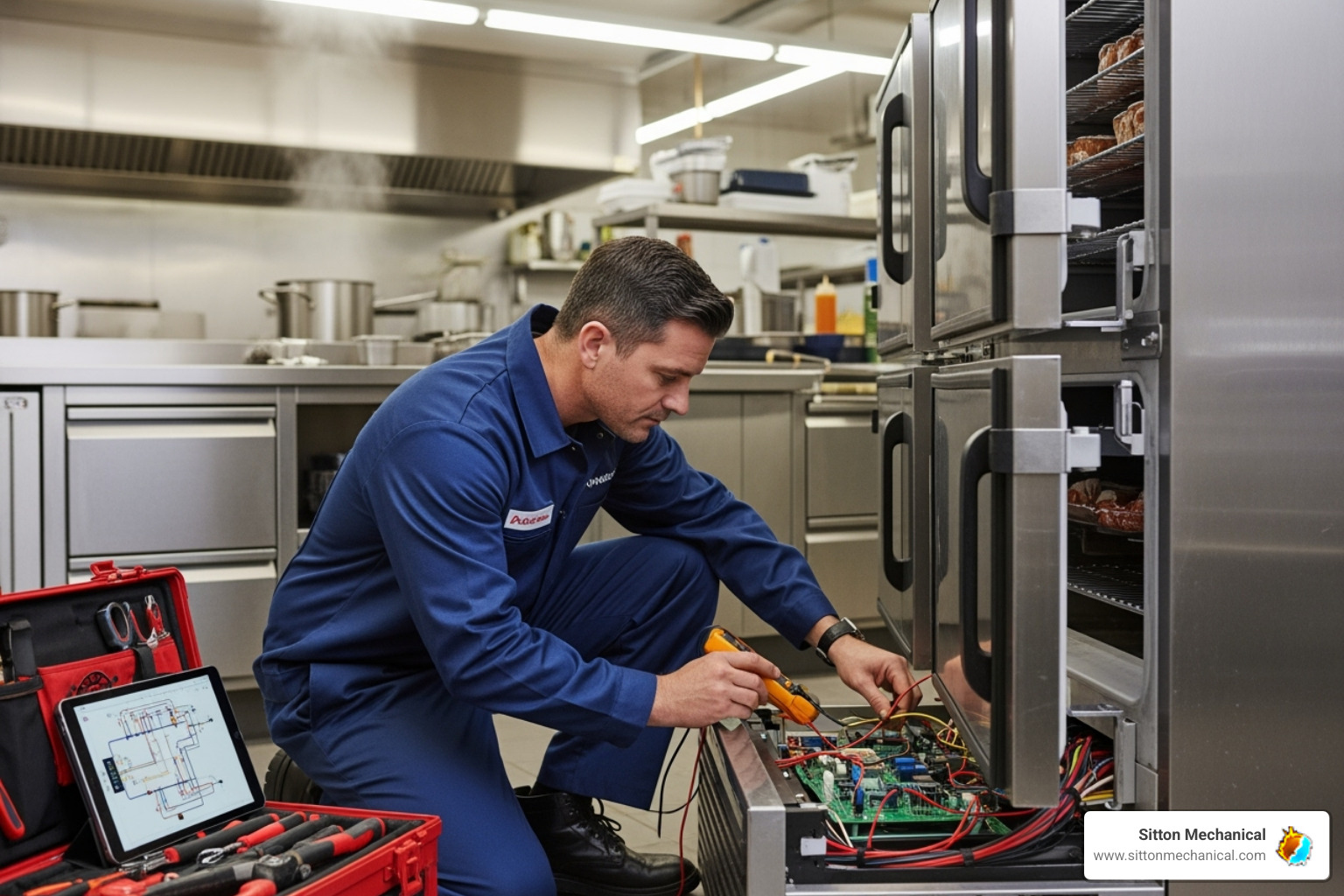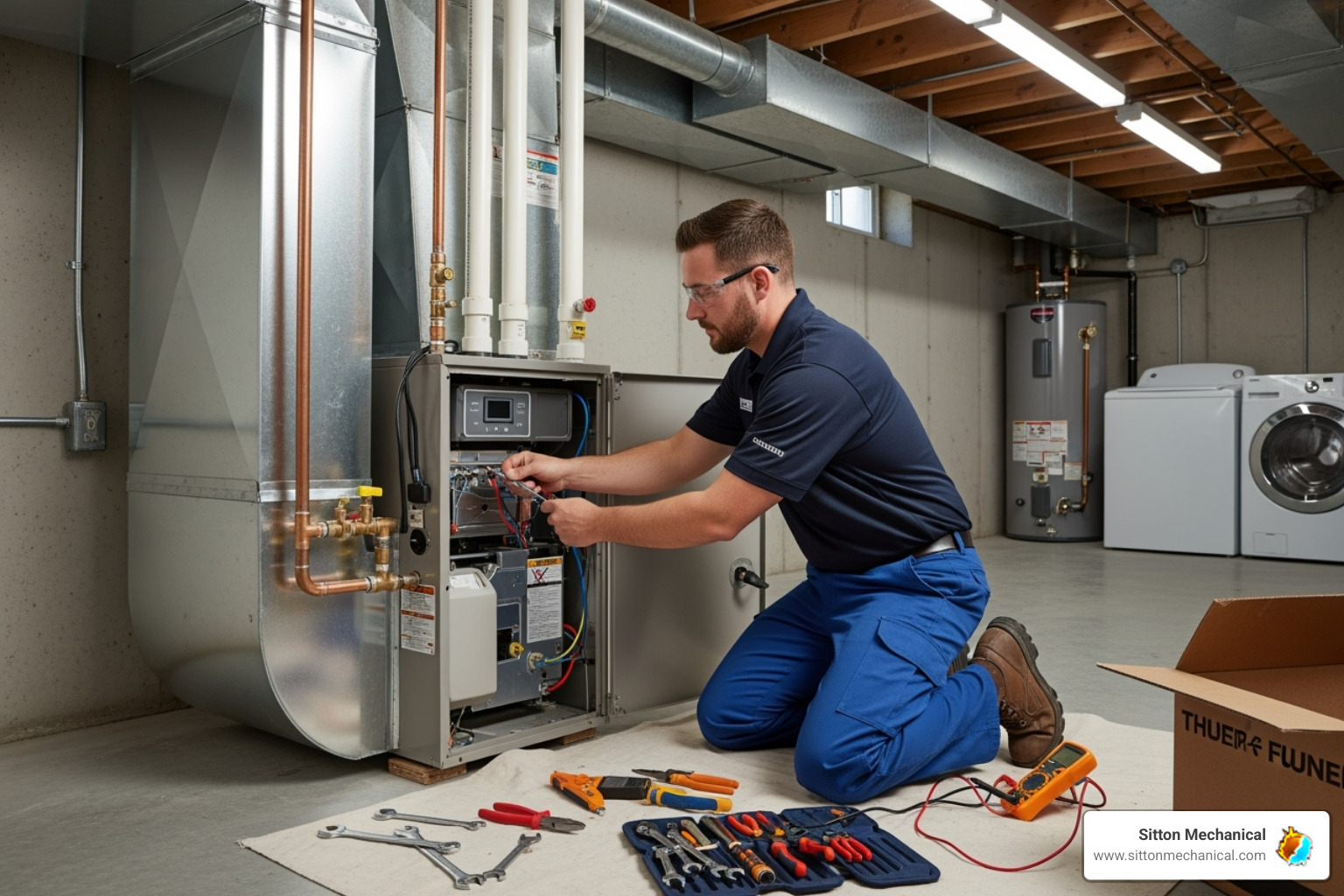During the high heat of summer in Stillwater, a working air conditioning system isn’t just a comfort—it’s a basic part of day-to-day living. When your AC stops cooling like it should, it can interrupt your routine, make your home uncomfortable, and place extra stress on your household. Sometimes the issue isn’t about the thermostat setting or dirty filters. It may be a refrigerant leak, which can cause your entire system to operate poorly and wear out long before it should.
AC refrigerant leaks often go unnoticed at first. The signs can start small, such as slightly warmer air, longer cooling times, or even a subtle noise. But over time, those small signs turn into bigger problems, like restricted airflow, frozen coils, or a system that shuts down entirely. Knowing what to watch for can help local homeowners take action sooner rather than later.
Common Signs of a Refrigerant Leak
When an AC unit isn't cooling the way it should, low refrigerant is one of the most common sources of the issue. Leaks reduce cooling power and affect the entire system. Here are some signs that could point to a refrigerant leak:
- The air isn't as cold: If your system is running, but the airflow feels closer to room temperature, the refrigerant levels may be too low to produce sufficient cooling.
- Hissing or bubbling noises: These sounds near the indoor unit or refrigerant lines can mean the gas is escaping through a small crack or hole.
- Ice forming on the coils: A frozen evaporator coil happens when the refrigerant drops too low. Without enough gas to absorb heat, condensation on the coil can freeze.
- Higher electric bills: If your energy costs are creeping up for no clear reason during warmer months, the AC may be working harder to hit your set temperature.
For example, you might notice your house taking nearly twice as long to cool off after getting home from work. You check the filter, make sure the vents are open, but the cooling still falls short. That extra runtime could be driven by low refrigerant preventing the unit from reaching temperature efficiently.
Keep in mind that topping off refrigerant is not a permanent solution. Leaks need to be found and fixed by trained technicians. Otherwise, the refrigerant will continue to escape, and the problem will keep coming back.
What Causes Refrigerant Leaks?
Refrigerant is held in a closed-loop system, so if levels are low, there is a leak somewhere. These leaks can come from a range of age-related or installation-related issues. Understanding the causes helps prevent future trouble.
Common causes of leaks include:
1. Corrosion in the coils and lines
AC systems have copper components. Over time, exposure to moisture or chemicals in the air causes corrosion, which eats away at the metal.
2. Poor or rushed installation
Mistakes during setup, such as loose connections or using the wrong materials, may not show up right away but can lead to problems down the line.
3. Manufacturing defects
Although this is less common, refrigerant lines or coils with structural faults can eventually rupture, even in fairly new systems.
4. Wear and tear from age
As systems run year after year, vibration and temperature cycles can stress the components. Older homes in Stillwater with aging AC units may experience more wear-based issues.
Even small leaks can lead to costly damage if not taken care of. Refrigerant isn’t like fuel you burn and refill—it should always stay in the system unless there's a problem. Once low levels appear, it means something is no longer sealed tight.
Dangers Of Ignoring Refrigerant Leaks
Refrigerant leaks may seem small at first, but over time, they can lead to bigger issues that are more expensive to resolve. One common consequence is damage to the AC system. When refrigerant levels drop, the compressor has to work harder to circulate what’s left. This strain can cause it to overheat or fail entirely. A damaged compressor is one of the most expensive repairs for any homeowner in Stillwater and can lead to a full system replacement.
There’s also the concern of indoor air quality. Refrigerant is not meant to be released into your living environment. While dangerous exposure is rare in most homes, small but steady leaks can compromise the efficiency of the system and lead to repeated run cycles. This increases your energy use and decreases the overall comfort inside your home.
Ignoring a leaking system can also have financial consequences. A leak won't fix itself. As refrigerant continues to escape, the AC system has to work harder and longer to try to cool your space. That drives up utility bills and can reduce the lifespan of the equipment.
Steps To Take If You Suspect a Leak
The sooner you act, the better your chances are of avoiding costly damage. If you think there might be a refrigerant leak in your AC unit, take these steps:
1. Turn off the system
Running an AC with a refrigerant leak can cause major wear and may lead to permanent damage. Shutting it down limits further harm.
2. Do not attempt to refill refrigerant
Adding refrigerant without finding and fixing the leak wastes time and will not solve the problem. Only trained technicians can properly locate and repair leaks.
3. Contact trained professionals
Our technicians use the proper tools and techniques to find leaks, seal them, and safely recharge the system to restore performance.
4. Plan for routine maintenance
Scheduled maintenance can catch potential issues early. Regular inspections help extend the lifespan of your AC system and keep it operating efficiently.
Taking action early helps reduce system strain and supports more consistent comfort in the home through the hottest parts of summer. Homeowners often wait until the AC stops working or short cycles before asking for help, which usually means bigger repairs and longer downtime.
Staying Cool In Stillwater Starts With Early Action
Catching small AC issues early is the best way to prevent large and costly problems later. A refrigerant leak does more than reduce cool air—it affects comfort, efficiency, and equipment lifespan. Even if your system still runs, it may be working under strain and slowly declining in performance.
Stillwater homeowners count on their AC systems through hot summer months. Being proactive means fewer surprises and more consistent cooling. By learning the signs of a refrigerant leak and knowing how to respond, you can protect your AC system, save on utility costs, and keep your home comfortable. Strange sounds, warm airflow, or higher bills are all early signs you should not ignore. Staying alert helps you deal with small issues before they turn into disruptions.
If refrigerant leaks are affecting your home's cooling, professional air conditioning repair in Stillwater can help restore your unit's performance and prevent further damage. Sitton Mechanical understands how essential a properly functioning AC is for your comfort and energy efficiency, which is why our experienced technicians are ready to diagnose and fix issues quickly. For a quick estimate or to book a service visit, please contact us today.
Ready to Transform Your Home?














